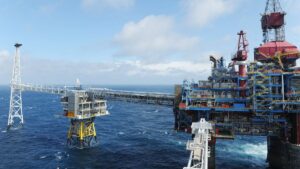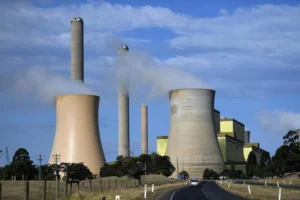
The first responsibility of a government is to safeguard the people and their future wellbeing.
The ability to do so is increasingly threatened by human-induced climate change, the accelerating impacts of which are driving political instability and conflict globally. Climate change poses an existential risk to humanity which, unless addressed as an emergency, will have catastrophic consequences.
An existential risk is an adverse outcome that would either annihilate intelligent life or permanently and drastically curtail its potential.
In military terms, Australia and the adjacent Asia-Pacific region is considered to be “Disaster Alley”, where the most extreme impacts are already being experienced.
These risks are either not understood or wilfully ignored at the leadership level in Australia, which is a profound failure of imagination, far worse than that which triggered the Global Financial Crisis in 2008.
The management of existential risk cannot be handled with conventional, reactive, learn-from-failure techniques. We only play this game once, so we must get it right first time.
This should mean an honest, objective look at the real risks to which we are exposed, guarding especially against the more extreme possibilities which would have consequences damaging beyond quantification, and which human civilization as we know it would be lucky to survive.
A hotter planet has already taken us perilously close to, and in some cases over, tipping points which will cause profound changes in major climate systems: at the polar ice-caps, in the oceans, and the large permafrost carbon stores.
Physical impacts of global warming include a hotter and more extreme climate, more frequent and severe droughts, desertification, increasing insecurity of food and water supplies, stronger storms and cyclones, and coastal inundation.
In the absence of emergency action to reduce Australian and global emissions far faster than currently proposed, the level of disruption and conflict will escalate to the point that outright regional chaos is likely. Militarised solutions will not be effective. Australia is failing in its duty to its own people, and as a world citizen, by downplaying these implications and in shirking its responsibility to act.
Yet people understand climate risks, even as political leaders wilfully underplay or ignore them. 84% of 8000 people in eight countries recently surveyed for the Global Challenges Foundation consider climate change a “global catastrophic risk”. The figure for Australia was 75%. Many people now see climate change as a bigger threat than other concerns such as epidemics, weapons of mass destruction and the rise of artificial intelligence threats.
So what is to be done if our leaders are incapable of rising to the task?
First, establish a high-level climate and conflict task-force in Australia to urgently assess the existential risks of climate change, and develop risk-management techniques and policy appropriate to that challenge.
Second, recognise that climate change is now a global emergency which threatens human civilisation, and contribute to building practical steps internationally for a coordinated global emergency response
Third, launch a domestic emergency initiative to decarbonise the economy no later than 2030 and build the capacity to drawdown carbon dioxide from the atmosphere.
Fourth, build more resilient communities domestically, and also in the most vulnerable nations regionally by high-level commitments and development assistance; build a flexible capacity to support communities in likely hotspots of instability and conflict; and rethink refugee governance accordingly.
Fifth, ensure that Australia’s defence forces and government agencies are fully aware of and prepared for this changed environment; and ensure their abilities to provide humanitarian aid and disaster relief.
Sixth, establish a national leadership group, outside conventional politics, drawn from across society, charged with implementing the national climate emergency programme.
So “Everything becomes possible, particularly when it is unavoidable”.Ian Dunlop was formerly an international oil, gas and coal industry executive, chair of the Australian Coal Association and CEO of the Australian Institute of Company Directors. This article is extracted from “Disaster Alley: Climate change, conflict and risk”, by Ian Dunlop and David Spratt, published this week: breakthroughonline.org.au/disasteralley







